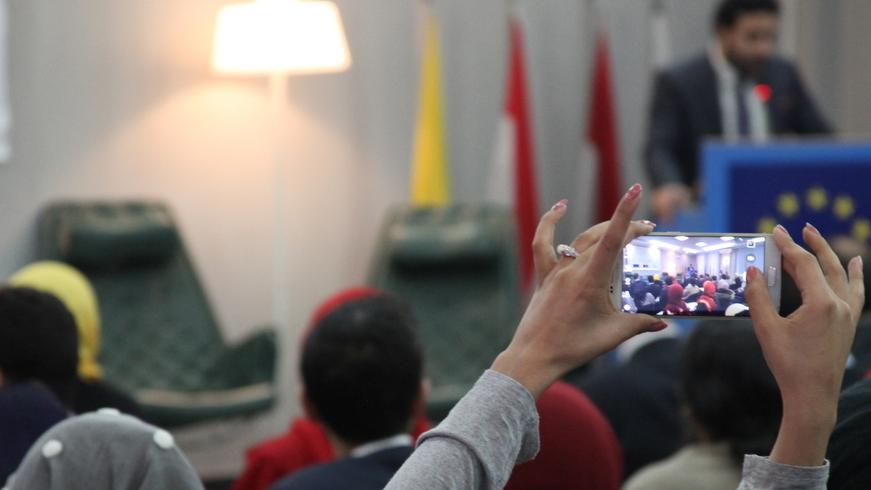KABUL - Journalist security and freedom of expression were the focus of a conference in Kabul yesterday, attended by media professionals from across Afghanistan.
More than 50 people -- representing journalist organizations, media outlets, civil society groups, government agencies and the international community – took part in the one-day event, which was organized by the Embassy of Sweden, with the support of UNAMA.
Speakers at the event discussed topics ranging from the media situation in Afghanistan to challenges faced by news outlets, including the security situation and the ability of journalists to express their ideas freely.
Participants acknowledged the support of the Afghan Government and the international community for a free and independent media. Yet they expressed concern about the impact of intimidation against media workers and attacks targeting them.
According to the latest Media Watch report -- issued by media-watchdog Nai -- targeted attacks on media personnel in Afghanistan have increased in 2016.
In Kabul, at a recent meeting with Nicholas Haysom, the UN Secretary-General’s Special Representative for Afghanistan, Afghan senior editors and media professionals said that they were concerned over the future of the freedom of expression and journalists’ safety.
During the meeting, the UN envoy said it is necessary for all steps to be taken to safeguard freedom of expression and journalists against those who seek to impose their views through violence, so that a strong and independent Afghan media can flourish.
In New York yesterday, following his Security Council presentation on the situation in Afghanistan, Mr. Haysom met with the press and highlighted the development that two Afghan news agencies have been listed by anti-government elements as targets.
“We would want to believe that doesn’t mean an extension of the battlefield onto the terrain of ideas, where battlefield tactics are used to control who says what and influence the flow of information and opinion in Afghanistan,” he said.
International humanitarian law, which applies to all parties to the conflict in Afghanistan, prohibits attacks against civilians at any time and in any place.






